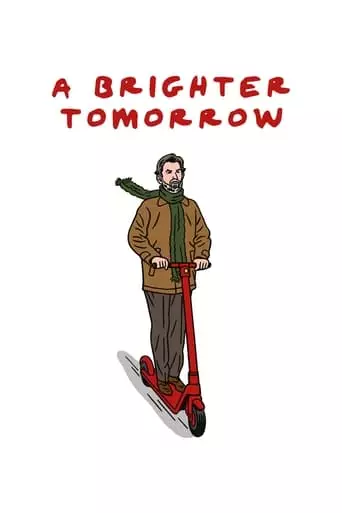An old film director unhappy with the movie he’s shooting about a Hungarian circus stranded in Rome during the 1956 anti-Soviet uprising faces divorce from his producer wife and other problems.
A Brighter Tomorrow (2023), directed by Nanni Moretti, is a contemplative and often humorous exploration of a middle-aged filmmaker’s existential crisis, both personally and professionally. The film follows Giovanni (played by Moretti), a director working on a film set in 1956 about a Hungarian circus and its arrival in Rome during the Soviet invasion of Budapest. As he navigates the intricacies of filmmaking and his personal life, the film delves into themes of love, abandonment, and the passage of time.
The plot centers around Giovanni’s strained relationship with his wife Paola (Margherita Buy), who is secretly considering leaving him after years of marriage. Giovanni’s neurotic behaviors and stubbornness become increasingly evident as his film production faces mounting difficulties, both on set and with his personal relationships. As he struggles with the pressures of his career, Giovanni also reflects on past desires, including a romantic, wistful film he would rather be making, and the shifting nature of modern cinema. His growing awareness of his alienation, from his wife and the world of filmmaking, creates a bittersweet portrait of a man stuck between nostalgia and the harsh realities of the present
10 Reasons to Watch A Brighter Tomorrow
- Nanni Moretti’s Return to His Roots: After his previous film Three Floors (2021) was met with mixed reviews, A Brighter Tomorrow marks Moretti’s return to the role of the lead character, a neurotic director. Fans of his earlier works will appreciate the familiar themes and character types.
- Exploration of Nostalgia: The film is filled with self-referential nods to Moretti’s past films, making it a nostalgic experience for those familiar with his previous works like The Son’s Room and Caro Diario.
- A Layered Look at Filmmaking: The film offers an insider’s look into the struggles of a film production, from the pressures of financial backing to creative differences, particularly in the context of modern filmmaking versus the past.
- Cultural and Political Reflections: Through Giovanni’s film about the Hungarian circus, A Brighter Tomorrow tackles political turmoil, examining the tension between personal and ideological allegiances, especially in the context of the Soviet invasion of Budapest.
- Strong Performances: Margherita Buy’s portrayal of Paola brings depth to her character, highlighting the emotional complexity of a woman torn between love and frustration in her marriage to Giovanni
- Humor and Heart: Despite the film’s serious undertones, it is filled with moments of humor, especially in Giovanni’s interactions with his crew and his sometimes absurd antics, which lighten the mood and offer a balanced emotional experience.
- The Soundtrack: The film features musical interludes that are both playful and reflective, contributing to the overall emotional tone and highlighting the personal and artistic dimensions of Giovanni’s journey
- Insight into Personal Struggles: Giovanni’s existential crisis, both as a filmmaker and a husband, makes him a relatable and multi-dimensional character, and his struggles with aging and personal relationships feel universal.
- The Visuals: The film’s nostalgic portrayal of 1950s Rome and the cinematic references to Italian cinema history are a treat for film lovers. The aesthetic choices support the emotional narrative.
- A Metatextual Experience: For cinephiles, the film’s self-referential nature offers a fascinating meta-commentary on filmmaking, celebrity, and creative fulfillment. It’s a film that reflects on its own making as much as the world it portrays
After watching A Brighter Tomorrow, viewers may feel a mix of melancholic reflection and light-hearted amusement. The film’s exploration of nostalgia and the passage of time might evoke a sense of bittersweet longing, especially for those who have seen Moretti’s earlier work. However, the film also offers moments of joy and humor, leaving the audience with a sense of connection to the characters’ emotional journeys. It’s a film that reflects the universal nature of human struggles, whether in love, family, or creativity, and it will likely inspire contemplation on one’s own personal and professional life.

